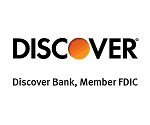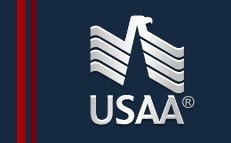I went to college in 1998, the literal Stone Ages of Banking when the best banks had marble facades, massive branches, and big minimum balance requirements.
My bank of choice was PNC Bank, one of the largest in the western Pennsylvania region, and I chose it because it had ATMs in our student union. That was the only criteria (and it’s a good one!) that I used.
Fast forward twenty years and it’s a whole new world. So many online savings and free checking account options.
It seems like every major bank has a bank account designed for students. They know that students often get jobs and need a place to put their cash. They all feel very similar, but there are minor differences, and we’ll briefly discuss them below.
Getting a bank account isn’t the most important money step you’ll take in college but it is one of the first.
How did we decide who appears on this list?
All the rules for finding a good bank account apply (with one exception, paying interest – most on this list don’t pay any appreciable interest). We also require that they don’t charge a fee if you are a student, most have a cut off of six years or when you turn 24.
(if it matters to you, you can also look for a good credit card for a college student and stick with the same back to keep things simple)
The banks on this list are solid, try to find one with a large ATM near where you go to school and you should be all set:
Table of Contents
1. Chase College CheckingSM – $100 Bonus!

Chase Bank offers a Chase College CheckingSM Account for college students 17 – 24 with proof of student status. The Monthly Service Fee is $0 for the 5 years while in college with a $0 minimum deposit. You can’t beat no Monthly Service Fee plus free money!
Chase will also give students a $100 bonus if they open an account and complete 10 qualifying transactions within 60 days of account opening.
Chase is appealing because they have an enormous geographic footprint, which includes an extensive ATM network and brick and mortar branches.
Available in: AZ, CA, CO, CT, FL, GA, ID, IL, IN, KY, LA, MI, NJ, NV, NY, OH, OK, OR, TX, UT, WA, WI, WV.
Learn More about Chase CollegeSM Checking
2. Discover Cashback Debit Account

Discover offers a Discover® Cashback Debit Account that isn’t specifically designed for college students but has all the features you’d want in one.
Their debit account is an online checking account that has no minimum balance and no monthly fees whatsoever. As a student, this means you can continue to use this account as your checking main account after graduation. They have partnered with the Allpoint ATM network so you get access to 60,000 ATMs.
What’s even better is that the debit card gives you 1% cashback on all purchases up to $3,000 each month – which is worth up to $360 in cash back each year. (see website for details) This is the everyday offer so you don’t have to worry about promotions or things changing on you.
Member FDIC.
Learn More about Discover Cashback Debit Account
3. SoFi Checking and Savings

SoFi stands for Social Finance and they’re a big student loan company that has tons of events for college graduates. They offer SoFi Checking and Savings, a regular banking account that offers a great interest rate of 4.60% APY (unlocked with direct deposit or by depositing $5,000+ every 30 days, otherwise 1.20% APY).
Plus, get up to $300 when you open an account and receive qualifying direct deposits totaling at least $5,000.
They started as a cash management account but it’s now a bank account, so you’re FDIC insured. What’s best is that there is no minimum balance required and no account fees. It’s one of the friendliest bank accounts you can get and you can even get ATM fees reimbursed as long as you use an ATM with a Visa, Plus, or NYCE logo. We have a full review of SoFi Checking and Savings.
They also run a lot of promotions for all of their accounts, you can review the SoFi promotions here.
Learn More about SoFi Checking & Savings
4. Ally Bank – Online Checking & Savings

Ally Bank has a great online savings and checking account that isn’t specifically for students but is perfect for them. As an online bank, they have no minimums and no maintenance fee for all customers. They also have partnered with Allpoint ATM network (43,000+ ATMs) and offer a $10 per statement cycle ATM fee reimbursement. All this on top of a very competitive interest rate, something you won’t see at a traditional bank.
While Ally is not specifically targeting college students, it’s one of the best online banks, because all of it’s standard features are just so good.
The Ally CashBack Credit Card is a no-annual-fee card that offers 2% cashback at gas stations and grocery stores with 1% everywhere else. If you can spend $500 in eligible purchases in the first three months, you can get a $100 bonus. Finally, there’s a 10% Ally Deposit Bonus if you deposit those rewards into an Ally Bank account.
5. USAA – Classic Checking for College Students

USAA has a College Checking account product that has no monthly service fee, no minimum balance requirements, and they don’t charge a fee for the first 10 ATM withdrawals outside of their ATM network. They offer $15 in ATM reimbursements each statement cycle but their ATM network is 60,000+ ATMs. They also offer free direct deposits, transfers and bill payments but that’s standard.
If you’re a student and need to establish credit, the USAA Secured Card Platinum Visa is a good option because its $35 annual fee is reasonable. Many secured credit cards are more expensive.
Also, you set a credit limit ($250 – $5,000) and that money is put into an interest-earning CD. That’s a nice little perk to help offset the cost.
6. U.S. Bank – Student Checking

U.S. Bank offers a basic Student Checking account for students that doesn’t charge a monthly maintenance fee (if you want paper statements, it’s $2/month). You get full access to online and mobile banking, all the apps and tools of a non-student account (bill pay, depositing checks, sending money) with a U.S. Bank Visa Debit Card for your spending. If you want checks, you get your first order free.
U.S. Bank also waives its fee on 4 ATM transactions when you use another ATM. There is no “other bank” ATM reimbursement though, U.S. Bank just won’t charge you.
7. PNC Bank – Virtual Wallet Student
I had to include my old student account, PNC Bank offers a Virtual Wallet Student account that waives the monthly service charge for up to six years. It offers all the features of Virtual Wallet, from their calendar to “spending zone” and even parent alerts when the balance is low.
There is a fairly extensive ATM network (9,000 ATMs) plus a PNC Bank Visa Debit card. You get online and mobile banking, “international services” that include language interpretation and international wire transfers, plus some financial education if you’re interested.
8. BB&T – Student Checking

BB&T offers a Student Checking account for students 23 years old and younger. There is no minimum balance requirement, no monthly maintenance fees, and there is no direct deposit requirement to get those fee waivers. They have a large ATM network (3,100 ATMs) but they will not charge you for two non-BB&T ATM transactions per statement cycle (they won’t reimburse you for other banks’ fees though).
Final Verdict
The biggest difference between someone who is a student and someone who is a non-student is money – it’s assumed students, with limited to no income, have very little money. Any money they do have comes from a low hourly wage job they do on the side, whether it’s working in a part-time job on or off-campus, or from outside support (scholarships, family, etc.).
Some banks realize that students, who may have little money now, will graduate and get good-paying jobs. Over a lifetime, college graduates will out-earn their non-college graduate peers by over a million dollars (Pew Research Center). They are willing to offer no minimum, low fee bank accounts now and hope the relationship builds from there.
So if you have a tough time picking between a few on the list, try to find one with a branch or an ATM that’s easy for you to get to. When I was in school, I didn’t have a car so I went with the one with an ATM in our student union. Pick one that works easiest for you and you should be all set.




Gabi says
what about capital one 360. i read it is comparable to ally. strange it is not mentioned here. any reason why not?
They’re comparable products but the interest rate for Ally Bank is higher. As of right now, the Capital One 360 savings account has a 1.00% APY whereas the Ally Bank savings account has a 2.00% APY. It’s hard to argue that a bank is better if it has an interest rate that is half the competition.
Also, Ally Bank has a better app.
Leroy says
I go to Umass Amherst. Do you recommend the school bank or one from this list ?
Hi Leroy – if you’re referring to the UMassFive College Federal Credit Union, I think it’s very similar in features to an online bank from this list, like Ally Bank. It’s a credit union, so it’s owned by the members, and it currently offers 1.95% APY on the Co-op Advantage Checking Account (close to the 2% at online banks). The advantage checking is structured like a rewards checking account because you need to make 12 debit card purchases, get 1 direct deposit, and get e-statements each month to get that rate. It also gives you $25 in ATM fee refunds each month, which makes up for the smaller geographic footprint.
Otherwise, the checking and savings accounts don’t earn much. As a college student, you probably aren’t holding a significant balance so that isn’t a huge concern. But, if it is, an online bank will have higher rates without the hoops.
Matthew Williams II says
HI Jim,
My name is Matt, and I am trying to decide if I want to create a student checking account with BB&T. I already have an account with NASA Federal, but i want to set up one with BB&T more so like not affiliated with me that I won’t spend it like I do my main account with NASA, but I am also a little hesitant with setting this one up because I have never done this before. Also is it much more quicker to set up an account online?
leon Lawson says
I have Wells Fargo, is it any good to get my Daughter a account as well?
Isabel says
Hello,
Do you have to be 24 years old and younger to have an account as a student? I’m 26 and I and currently in college looking to open a student account
It depends on the bank but many do have an age limit of 24.
Drieu says
Im new to looking for a bank and I just want to know that my money will be safe and I have heard a lot of good things about credit unions, so what’s your opinion on them. Are they better that banks?
They’re different than banks because it’s a union, rather than a commercial enterprise. The biggest trade off is a smaller geographic footprint but one is not any “better” than the other as a whole, I would compare specifics.
It doesn’t make a huge difference, given how commercial many banks are, but it doesn’t hurt. If you have a good relationship with a banker at BoA, you could ask him or her. If you don’t, then it doesn’t make much of a difference.
Kendall Shannon says
I am currently with Chase Bank who I have been with for a little over 3 years, and recently they changed my High School Checking account into a normally Checking Account without notifying me. Now that I have had to go in to change it to a College Checking Account I am thinking seriously thinking of changing to Fairwinds Credit Union but you did not mention in the article is would there be a reason for this? Was your article for Bank only and not Credit Union? Also if you could me some advice, I am a second-year college student.
This page was just for banks, I didn’t take a close look at any credit unions. They have a Freedom Access Checking account, available to everyone, that seems like a good basic checking account. I tried to learn more about their UCF student checking account but had trouble finding out details.
Claire says
My future college has 2 atm’s on campus. Both are Wells Fargo. I didn’t see them mentioned. Any reason?
They have a student account but it’s pretty vanilla – $25 minimum and no service fee if you’re aged 17-24. It’s a perfectly fine checking account but nothing special.
lara malcarne says
Hi Jim,
Great article! Our son has a bank account that we opened for him when he was little. It is linked to our accounts. He is going to be a freshman this year. Should he open a completely separate checking account and have us close the one we already have? Thanks!
Since your bank account has no impact on anything (no credit history / score implications), there’s really no financial reason to have him open a separate checking account. It might be easier for you to keep the linked one so you can transfer money if you need to.
Biagio Iannace says
I have a son going to a school where M&T has ATMs. Is it better that I open a “checking” account so that he can withdraw money or another type of account. Thank you.
You will want a checking account. Another option is to go with an online bank that offers ATM reimbursement, so he can use any ATM and get reimbursed.